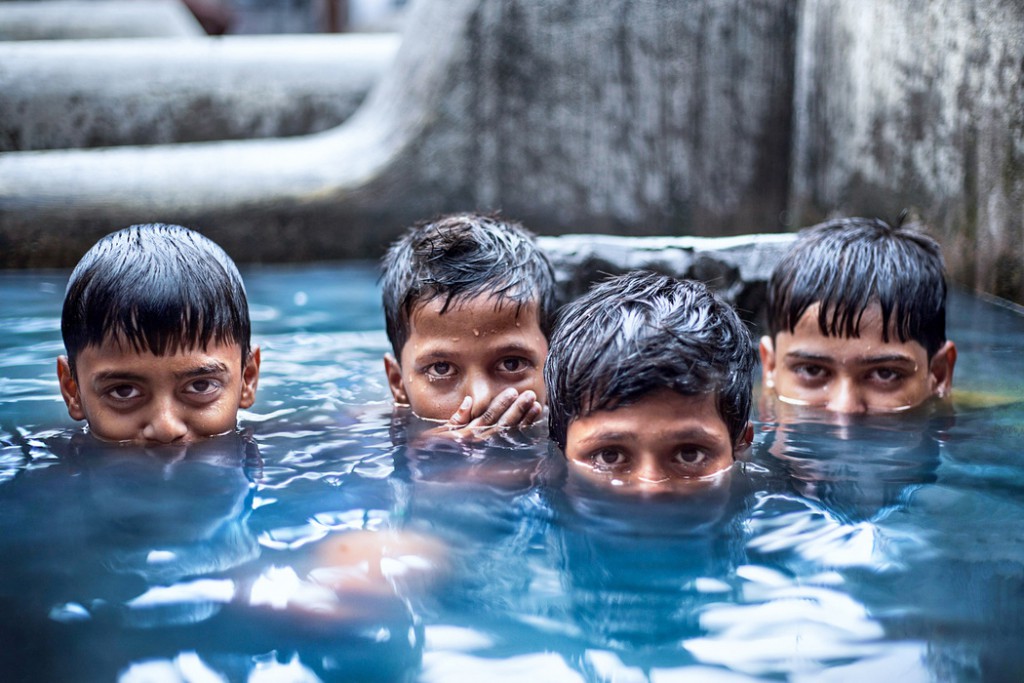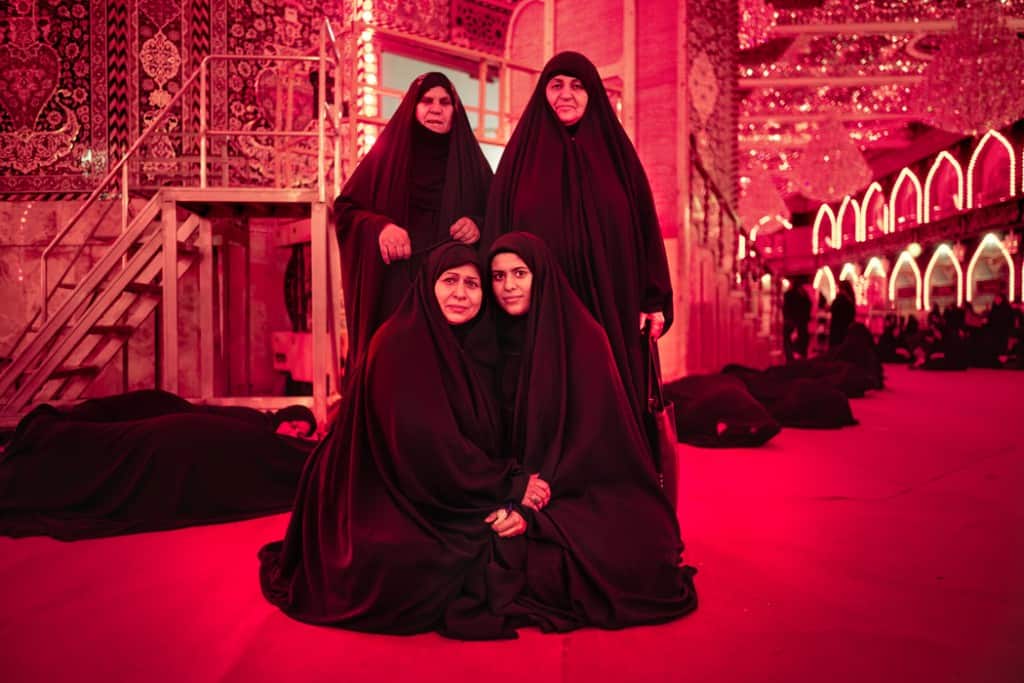Emily Garthwaite spoke to Words+Images about sharing marginalised voices, how mental health is a factor in determining risk and why perfume is essential kit in the field.
Emily Garthwaite is a British photojournalist whose work focuses on humanitarian and environmental issues.

A Leica Ambassador and one of Forbes magazine’s 30 Under 30, Emily co-directed The 40th Day, a documentary covering Arbaeen – the world’s largest annual pilgrimage through Iraq – as well as walking the 500km distance herself.

Splitting her time between the UK and Iraq, this year she founded WomenTranslate, a women-run language translation service.

Your work has taken you to some pretty interesting but also quite risky parts of the world? How do you prepare for visiting higher-risk destinations?
I depend on the advice from the team I am working with, but more often than not, we’re not in high-risk regions. There are generalised perceptions of many countries, particularly Iraq, and for the most part, the regions I work in are safe.

High-risk for me are stories that will likely affect my mental health – and I am learning how best to look after myself as I work.

Are you a member of IFJ? If so, how do you feel journalists benefit from memberships of professional unions?
I’m not a member of IFJ, but I am a member of the Frontline Freelance Register. It is a fantastic space run by freelancers, for freelancers. I have the opportunity to connect with other journalists and to seek advice from the team that run it. I am press-registered through them.

It feels like we live in pretty polarised times in many respects. Do you feel a responsibility to the maligned or marginalised communities you cover?
Absolutely. It is a privilege to document and immerse myself within communities around the world. I’m always learning from them, and as I learn, I share it online. I have an opportunity to share their voices and to learn how to use mine.


There’s been plenty of mistakes along the way, but that’s all part of growing. I feel like people can join me on that journey.

Your work ‘prioritises positive news, and stories of resilience and empowerment.’ How do you choose a photo topic? Anything you’ve shied away from?
For the most part, people have approached me and asked if I’d be interested in meeting their community and learning more about their experiences.


I had visited and spoken at several mosques and was introduced to a number of scholars from Dearborn in Michigan, USA. I started to research and discovered Dearborn is home to the largest Muslim population in America, and the largest Middle Eastern community outside of the Middle East. Last year, during Ramadan, I moved to Dearborn, just outside Detroit, for a few weeks to live with a Muslim family. You can find the work here.
What photo are you proudest of? What’s the story behind it?
Photographs of my family are treasured. These three of my mother, father, and grandmother are the most important of all.



Does being a female photographer help in some communities with gaining access to women and their stories?
Yes. There are many difficulties as a woman photographer, safety being one of them, so having access to women’s spaces is something I treasure. I feel impossibly happy when I’m in a room filled with women.

What about essential kit? What are the items you find make your life easier, safer or more comfortable on the road?
I carry two cameras: Leica SL, with a 28mm lens, and a Leica M240 with a 35mm lens as well as four batteries, and two hard drives.

Some jobs involve not washing, sleeping in a room with many people, incredibly hot weather, or carrying heavy bags. Music, podcasts, and Netflix are essential. Poetry books too.

I always bring an eye mask and earplugs, so that I can *almost* sleep anywhere! I wear my perfume every day, regardless of where I am, as it always lifts my mood. I also carry essential oils, pyjamas, and resistance bands for a short workout.

Finally, freelance photojournalists have been digital nomads before the term was ever invented: any tips for living and working abroad for extended periods of time?
All the above help! I always unpack my suitcase – it’s important to settle in, if only for a few nights. I carry mini candles as a luxury item and journal regularly. I’m learning to switch my phone off more too, to meditate, and to know when to sign off for the day. It’s all about creating positive habits!











